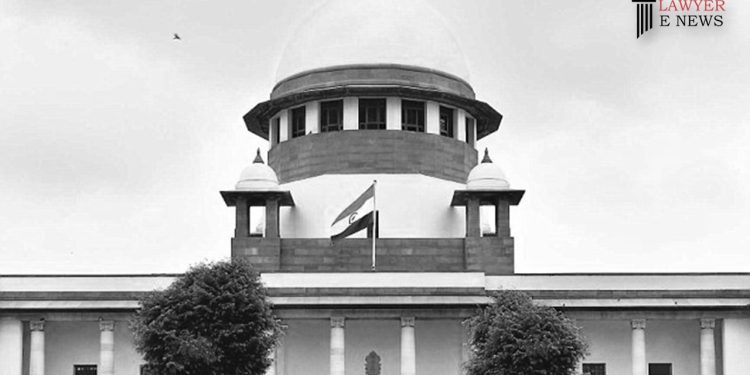Empowers Unorganized Sector Workers: Supreme Court Issues Sweeping Directions for Effective Implementation of POSH Act

In a groundbreaking decision, the Supreme Court of India has issued a set of sweeping directions aimed at ensuring the effective implementation of the Prevention of Sexual Harassment (POSH) Act and Rules, with a particular focus on providing protection to workers in the unorganized sector. The judgment, delivered on October 19, 2023, has far-reaching implications for the rights and safety of employees, especially women, across the country.
The judgment emphasizes the horizontal application of the POSH Act, expanding its scope to include definitions of ’employee,’ ’employer,’ and ‘workplace.’ It also highlights the importance of Local Committees (LCs) in the redressal framework for the unorganized sector. LCs are empowered with powers equivalent to a civil court to conduct inquiries, issue summons, and enforce attendance, making them instrumental in addressing cases of sexual harassment.
The Supreme Court acknowledges the role of NGOs in aiding the unorganized sector’s workers, making it easier for them to approach LCs. However, it points out a significant limitation in the Act, which depends on the Union Government to disburse funds to the States for the Act’s implementation. The Court stresses the need for setting budgets at both district and state levels to ensure the Act’s effective execution.
The judgment lays down a comprehensive set of directions to ensure the Act’s practical implementation:
- Coordination between Union Government and State/UT Governments: The Women and Child Development Ministry of every State/UT will identify a ‘nodal person’ to oversee and coordinate matters related to the POSH Act.
- Appointment of Public Authorities: District officers must be appointed within four weeks, followed by the appointment of nodal officers and the constitution of LCs.
- Amendments and Gaps in Rules: The Union Government is urged to amend the Rules to operationalize Section 26 of the Act and create a ‘nodal person’ post for uniform implementation.
- Training and Capacity Building: Mandatory training is required for District Officers, LCs, and nodal officers.
- Larger Efforts Towards Awareness: Allocation of financial resources for awareness material and training programs, identification of NGOs for awareness, and efforts to make LCs more approachable.
- Annual Compliance Reports: District Officers must ensure compliance with reporting requirements, and State/UT Governments must create a Standard Operating Procedure (SOP) for monitoring implementation and maintaining data.
- Monitoring of ICs and Compliance by Employers: Directions reiterated for the constitution of Internal Committees (ICs) in various establishments, including hospitals, nursing homes, sports institutes, stadiums, and sports complexes.
This judgment underscores the significance of implementing the POSH Act effectively, especially for the unorganized sector, and sets a clear roadmap for the Union Government, State/UT Governments, and district officers to ensure the Act’s provisions are fully realized.
The matter is scheduled for further compliance in the first week of February 2024, marking a significant step towards safeguarding the rights and dignity of workers in the unorganized sector.
Date of Decision: October 19, 2023
INITIATIVES FOR INCLUSION FOUNDATION vs UNION OF INDIA & ORS.






